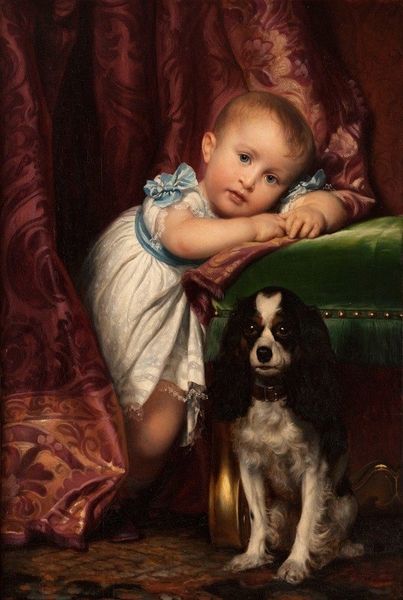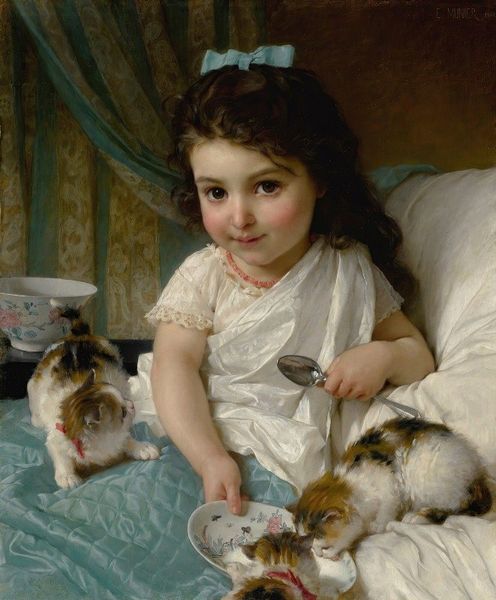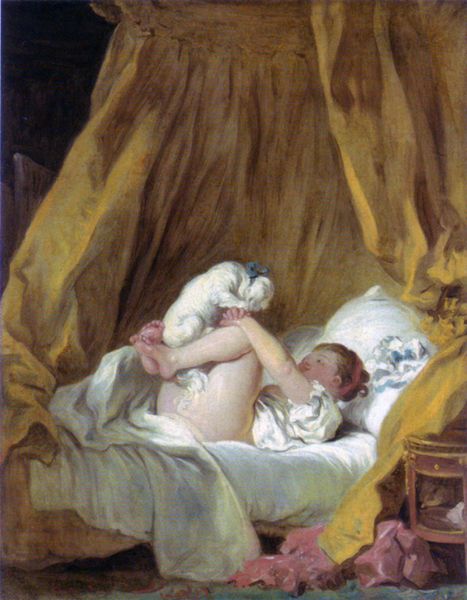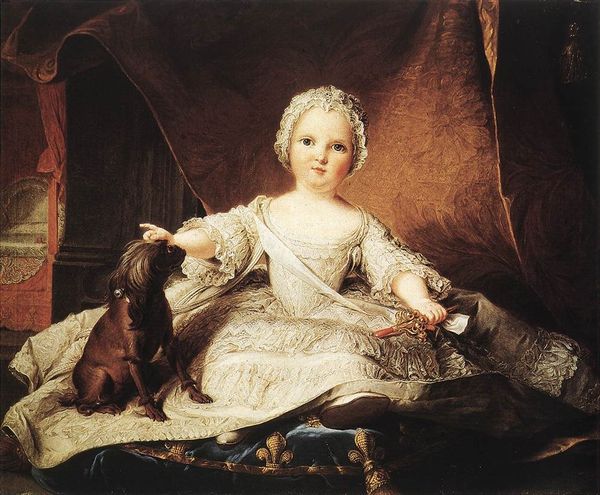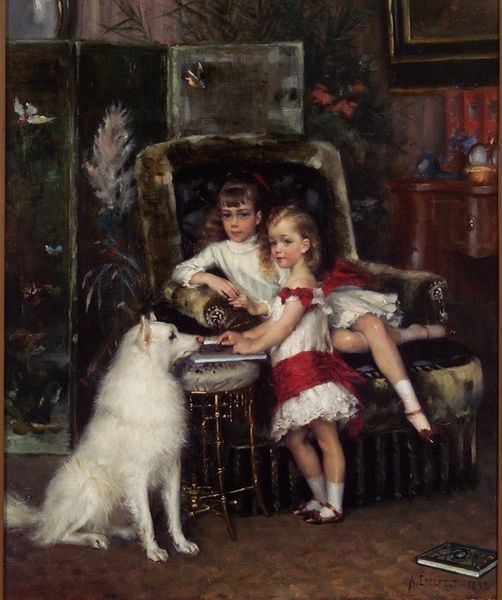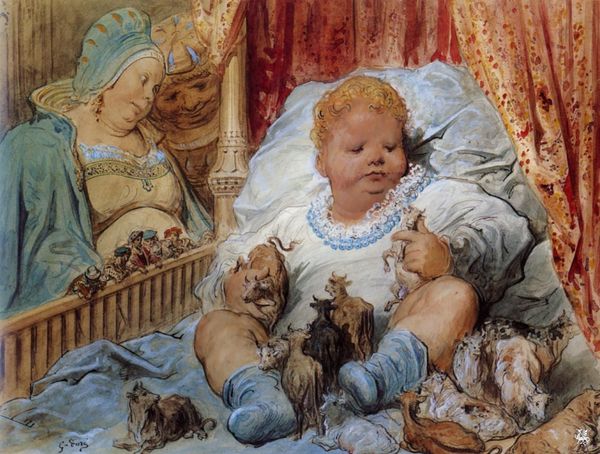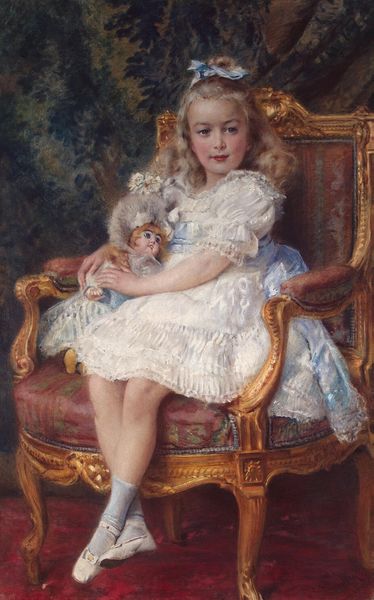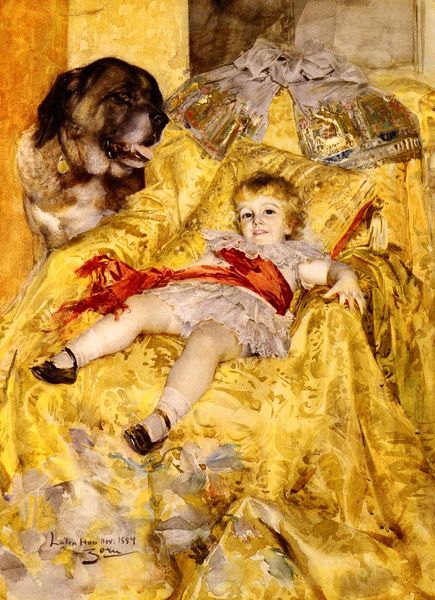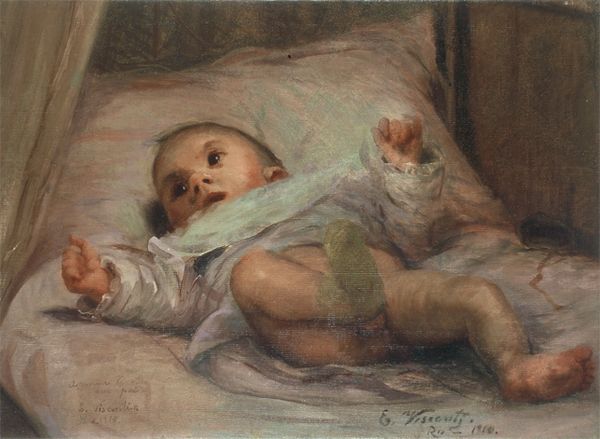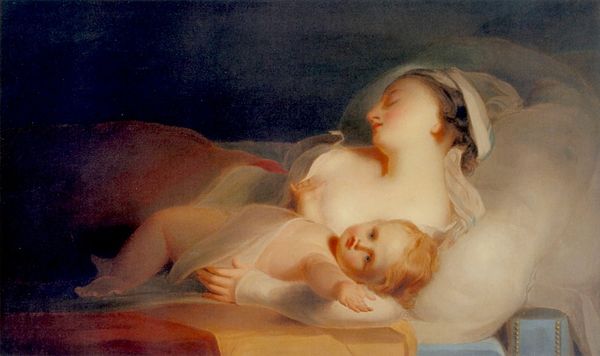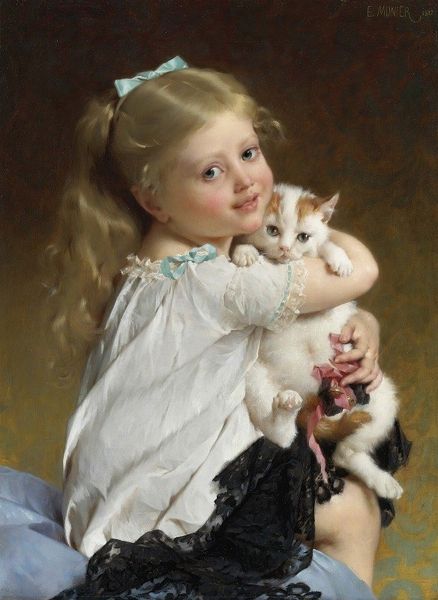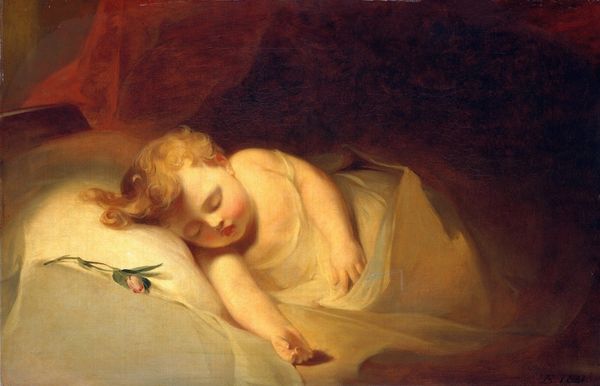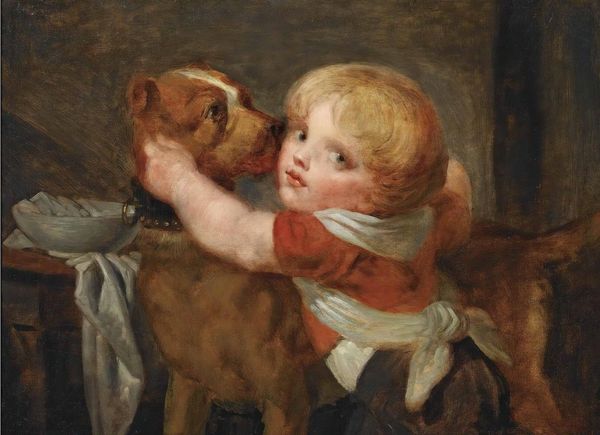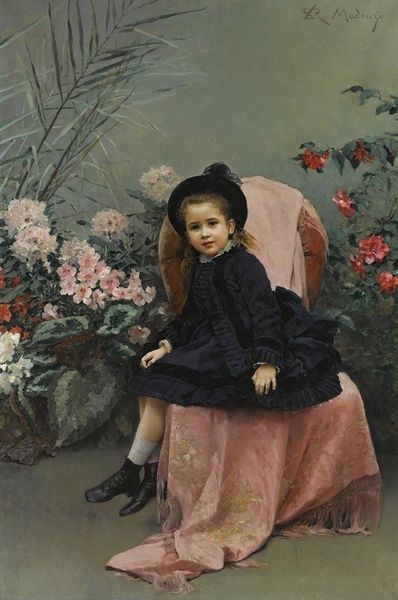
painting
#
portrait
#
fancy-picture
#
painting
#
dog
#
child
#
strong emotion
#
romanticism
#
veil as a decoration
#
genre-painting
#
northern-renaissance
#
realism
Copyright: Public domain
Editor: Edwin Landseer's "Victoria, Princess Royal, with Eos," painted in 1841, depicts a royal baby in a lavish setting. I am struck by the intimacy of the scene juxtaposed with its clear intention to project power. What can you tell me about its deeper meaning? Curator: The dog, a constant motif in Landseer’s paintings of royalty, often embodies faithfulness and guardianship, yet also signifies vulnerability. Note its dark color in stark contrast with the baby’s pristine white dress and the pure white dove. The infant's gestures read as innocence, while the dove, a symbol of peace and the holy spirit, signals divine favour. Doesn't this arrangement of symbols create a narrative of divinely sanctioned rule? Editor: Absolutely. And is it typical to include animals as symbolic features in royal portraiture of this era? Curator: Though animals often appeared in aristocratic portraiture indicating status and love for nature, Landseer's insertion of potent, sentimental symbols transforms the royal image into a psychologically richer tableau. It's about more than just lineage; it's about character and destiny made manifest. Think about the composition: do you feel like it communicates anything? Editor: I see. Landseer crafts a specific message, and it appears less concerned with likeness and more with the projection of idealised virtue through coded imagery. I hadn't fully appreciated how the interplay between these symbols creates that layered effect! Curator: Indeed. Recognizing such symbols unlocks the deeper narratives embedded within even the most seemingly straightforward portraits. It’s an enriching exercise to find echoes in the present day, how certain archetypes endure despite shifting aesthetics and social values.
Comments
No comments
Be the first to comment and join the conversation on the ultimate creative platform.
